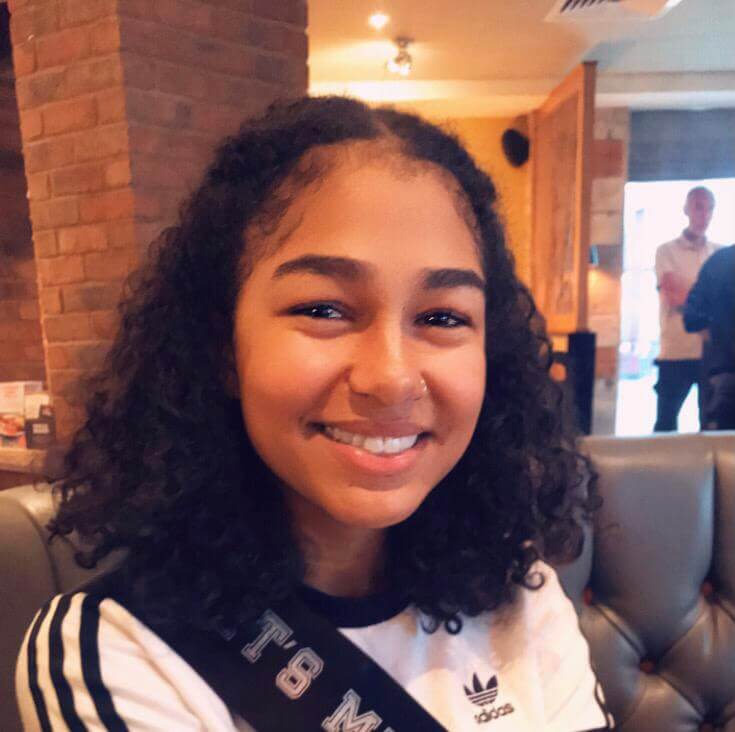UN International Youth Day – in my own words: Ayishia Jones, 20
Today we mark the United Nations International Youth Day, which we use to acknowledge the incredible potential of the young people in our communities. The Violence Reduction Unit believes that collectively, we have a role to support young people to overcome the challenges in their lives to ensure they reach that potential.
Today’s guest blog is written by Ayishia Jones, 20, of Reading in Berkshire and provides us all insight and inspiration:

I am Ayishia Jones, a 20-year-old student currently studying a degree in Education Studies at the University of Reading with the aspiration of becoming a teacher in the future. I have lived in Reading my whole life, and I grew up in the Whitley area. For this year’s International Youth Day, the Thames Valley Violence Reduction Unit asked me to share some of my experiences and thoughts about what challenges young people face today. Also, what is needed to help us reach our full potential?
I was born and raised in Whitley, to a single mother in a working-class family. Growing up, in the area and the type of family that I did, meant that I was disadvantaged as I was not able to have full access to a wider range of support and resources that more affluent communities had. Which is a challenge I feel many of the young people in my area have faced. This also meant that I went to a secondary school that was often rated low in league tables and deemed by Ofsted as ‘Inadequate’, with a reputation as a ‘bad’ school for underachieving students. Going to a low-level state academy made education an important part of my life, as I constantly strived to achieve and prove I could be more. Where my school failed to provide the right resources, my family tried their best to help when possible. However, I noticed many of my other peers at school were often left behind to underachieve because they were not offered the right resources from either family or school. Therefore, they could not reach their full potential, which led to many of them having apathy towards academia and having no further ambitions to go into higher education. This I feel is still an ongoing issue that many under privileged and lower income youth must deal with.
A major challenge that young people of today have had to face that previous generations did not, is a pandemic that has made all aspects of life unlike anything before. Many young people, me included have had to experience their education from home. University students have not been given the opportunity to experience their university to the fullest because they are not on campus, they have not been able to access the same resources, such as the library. Also, many have missed out on a lot of social interactions with other peers or professors. While other young people have not been able to sit their A-levels, or GCSE’s. Which for some may have affected their chances into getting into the colleges or universities they wanted, having a knock-on effect onto them being able to reach their full potential.
The pandemic has led to many individuals losing their jobs and stability. So, for many young people just entering the job market they must compete with more people, while there are fewer job vacancies, as many companies have had to face cutbacks or bankruptcy. This is without considering the issue that youth from lower income and class are seen as less employable because they cannot afford the same work and volunteer experiences or extracurricular activities that higher social classes can. As a lot of young people, such as university students like me must work part-time jobs to help provide living for themselves or for their families. This leads to those of lower social class being pushed further down the employability ladder, meaning they cannot reach their full potential in their chosen career path.
However, I am just briefly touching on a few challenges I feel that young people face. For instance, there are major issues with race and racism, which I feel last year’s events and organisations such as Black Lives Matter have highlighted the need for greater discussion and action to be taken to tackle brutality and discrimination against ethnic minorities. As well as open discussion about the challenges that young LGTBQ+ individuals experience in their lives, being necessary to educate people and create safe spaces for LGBTQ+ individuals. However there many other factors, such as disability, class, religion, culture, and gender that can affect the lives of today’s youth.
Although there are many challenges in life for young people, organisations such as the Thames Valley Violence Reduction Unit, work to help young people. By giving them opportunities to voice their own personal experiences and discuss how we can all help to make a better future for ourselves. International Youth Day is all about celebrating the amazing potential that today’s youth have, the endless creativity and enthusiasm that will amount to us achieving great things. As young people today, are much more expressive and willing to discuss important social issues.